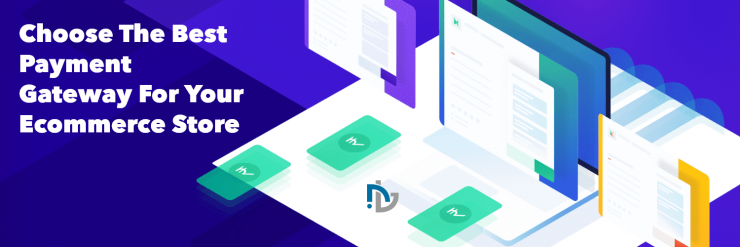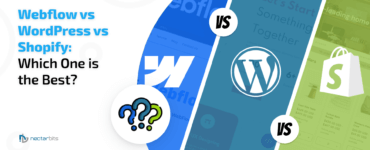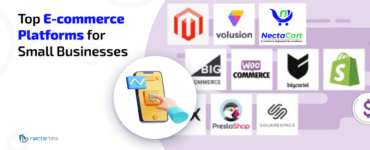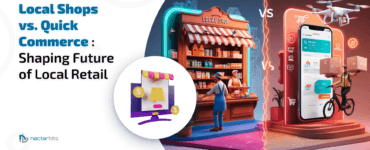Launching an Ecommerce store? Congrats! You will be jumping on the billion-dollar industry bandwagon.
Do you know?
Checkout stays at the heart of Ecommerce development about which the e-retailers are laser-focused. But, the harsh reality is most of the carts are abandoned at the time of making payments. The unavailability of the audience-preferred payment option, lack of trust, security concerns, and certain limitations are the reasons that deter the users from making an online purchase.

It’s a sign- payment gateway selection is one of the vitally important considerations. Confused a little? Let’s shed some light over it:
The payment gateway is software which helps online store authorize and process payment from the customers. The trouble-free transactions are ensured between merchant accounts and the customers through a technology that enables encryption and security protocols from end-to-end.
Read more : E-Commerce Platforms for Small Business 2020?
Under the online payment transactions, three parties are involved namely- merchant, customer, and technology. The customers make the payment using the debit or credit card. The merchant partners with a bank, which accepts the payment on the merchant’s behalf, and then deposits the payment upon the successful transaction into the merchant account.
The payment gateway is the middlemen that connect the Ecommerce cart to the card processing and enable payment processing, including moving the transactions, sending billing statements, working with the merchant bank, and pretty more.

It’s pretty clear, implementing payment gateway is a good deal for the Ecommerce store that lifts away from the heavy work of transaction processing and management. However, plenty of payment gateway options make the narrowing down the choice to one a bit daunting. Also, the suggestions for Google wallet and PayPal make them more confused. What to do?
We have got your needs covered in the next section that enlists a couple of things that must be considered before you choose the payment gateway which fits best with the businesses’ payment-specific needs. They are:
- Onboarding charges
The start-ups with a less deep pocket are advised to save huge bucks by opting for the payment gateways that charge zero sign-up fees. However, the setup fee, account setup fee, monthly fee and other types of fees are charged by the service providers. In the event, the Ecommerce store will sell a large scale of merchandise, then favoring the payment gateways with some sign-up fee is a good option.
- Modern vs. Classic- which is the best fit?
The modern payment gateways are those payment gateways that facilitate both merchant account and payment processing to process the payment. It eliminates one step of setting up the merchant account to get the store up and running quickly and easily. However, such payment gateways like- PayPal and Stripe comes with high price tags where higher transaction fee is charged in addition to the account setup fee.
Read More: Advantages of E-Commerce ?
On the other hand, classic payment gateways won’t provide the merchant account in the package, which makes them a great alternative for the merchandise trading high sales volume. Authorize.Net is a popular instance of classic payment gateway, that’s equally trusted and well-known globally.
- Associated fee structure
Undoubtedly, everyone who is involved in the transactions from issuing banks and credit card providers to the merchant bank eats up a good amount as a fee. Then, how the payment gateway could be an exception? Various payment gateways have different fee structures with some hidden charges, so you should be aware of them beforehand.
You will find some gateways with zero initial fees and higher per-transaction fees, while others charge a monthly fee with lower per-transaction fees. Understanding the cost breakdown before signing up the contract is all-important.

Check the transaction fee they charge according to location, product, and other specifications. The additional charges that are involved with the merchant account setup must be cross-checked as specified under payment processing fees and policies. Moreover, the statement fee, customer support fees, terminations fees, and minimum fees monthly or annually should be asked from upfront because they are rarely revealed verbally and just written in policies.
- Support for Cards and currencies
When the Ecommerce store is going to sell the products and services globally, then the customers expect a wide range of payment options to make the payment with the preferred mode. When you anticipate the users will pay using the credit and debit card only, then you are more likely to lose the chunk of the audience that’s hoping to see mobile
wallets like- Apple Pay, Google Pay, or Visa Checkout to make the payment.
Besides, for global selling, the customers expect to see the price tags of products in the national currency rather than converting them into national currency manually.
Read more : How E-Commerce App Development Company Can Ease Your Pain?
It’s prudent to select the payment gateway that supports multiple payment options and compute the transactions in the user’s native currencies.
- Hosted or integrated- which way to go?
Hosted payment gateways redirect the customers away from the Ecommerce website
to a payment service provider’s platform to enable transactions and bring them back once the payment is successful. PayPal is a hosted payment gateway that works like just set-it-and-forget-it. It’s simple to integrate with no security responsibility because the service providers are liable for everything.
The integrated payment gateways connect the Ecommerce website to gateway services via an API where the users can enter the card details on-site. With no redirection involved and mobile-friendliness makes the payment a seamless and smooth experience.
Vitally, the integrated payment gateways are preferred by the Ecommerce websites to not allow the users to move anywhere. In some cases, to quickly get the website up and running, the hosted solution is also chosen.
- Keep security a top priority
As we have discussed above, security is the main driver of cart abandonment. The store’s credibility, reliability, and trustworthiness are standing on the security pillars of payment gateways. Well, during the selection process, you will find every service provider claiming top-notch security, but you cannot rest assure on their words.

Dig a little deeper to check if they are Level 1 PCI DSS compliant and GDPR compliant to get saved from heavy penalties. You should ask about the CVV2 verification and encryption standards to ensure the transactions are covered under the net of security. Choosing the hosted solution is a better approach to stay relieved from the security stress.
- Integrate recurring billing
The businesses that mainly offers subscription services or accept recurring payments for the goods that are purchased regularly, then the recurring billing feature is a must-have for them. Under the
feature, the Ecommerce store can set up recurring payments for monthly, quarterly, or annually. Look for the feature, in case your store needs it.
- Product compatibility
Beware! All payment gateways won’t provide the services for tangible products and intangible products such as digital products and services. Make sure to ask before you commit with any one of the service providers. Some payment gateways support tangible products, digital products, or both. Check the terms and conditions for the product you sell to stay on the safer side.
Conclusion
Hopefully, you got enough information about how to choose a payment gateway for your Ecommerce store that won’t let you regret in the future. Keep this checklist ready with you when it comes to narrow down the choice to one and finally, select the one that fits the bill and make the business thrive.









